new posts in all blogs
Viewing: Blog Posts Tagged with: Hercule Poirot, Most Recent at Top [Help]
Results 1 - 10 of 10
How to use this Page
You are viewing the most recent posts tagged with the words: Hercule Poirot in the JacketFlap blog reader. What is a tag? Think of a tag as a keyword or category label. Tags can both help you find posts on JacketFlap.com as well as provide an easy way for you to "remember" and classify posts for later recall. Try adding a tag yourself by clicking "Add a tag" below a post's header. Scroll down through the list of Recent Posts in the left column and click on a post title that sounds interesting. You can view all posts from a specific blog by clicking the Blog name in the right column, or you can click a 'More Posts from this Blog' link in any individual post.
Lord Edgware Dies (OR Thirteen at Dinner). Agatha Christie. 1933. 260 pages.
I absolutely LOVE, LOVE, LOVE this Agatha Christie mystery. It stars both Hercule Poirot and Captain Hastings, a combination I find very hard to resist. The mystery begins with an American celebrity--an actress, Jane Wilkinson--asking Poirot for help. She's not asking him to solve a crime, exactly. She's asking him to go to her husband--whom she hates--and ask him if he'll grant her a divorce. After this consultation, she "carelessly" mentions how she wants her husband to die; at one point she even shares just how she would kill her husband. A few take her seriously pointing out to Poirot that Wilkinson is the type of woman who would kill without thinking it wrong. But Poirot likes to make up his own mind, come to his own conclusions about people's characters and motives.
So when a little time later, Lord Edgware is killed, Poirot becomes interested in the case...
This one was a delightful mystery! I just love Agatha Christie! This may be among my favorite Poirot mysteries!!!
Favorite quotes:
"I always find alibis very enjoyable," he remarked. "Whenever I happen to be reading a detective story I sit up and take notice when the alibi comes along." (122)
"Between the deliberate falsehood and the disinterested inaccuracy it is very hard to distinguish sometimes.."
"What do you mean?"
"To deceive deliberately--that is one thing. But to be so sure of your facts, of your ideas and of their essential truth that the details do not matter--that, my friend, is a special characteristic of particularly honest persons." (128)
"The positive witness should always be treated with suspicion, my friend. The uncertain witness who doesn't remember, isn't sure, will think a minute--ah! yes, that's how it was--is infinitely more to be depended upon!"
"Dear me, Poirot," I said. "You upset all my preconceived ideas about witnesses." (129)
"My good friend," he said. "I depend upon you more than you know."
I was confused and delighted by these unexpected words. He had never said anything of the kind to me before. Sometimes, secretly, I had felt slightly hurt. He seemed almost to go out of his way to disparage my mental powers.
Although I did not think his own powers were flagging, I did realize suddenly that perhaps he had come to depend on my aid more than he knew.
"Yes," he said dreamily. "You may not always comprehend just how it is so--but you do often, and often point the way."
I could hardly believe my ears.
"Really, Poirot," I stammered. "I'm awfully glad, I suppose I've learnt a good deal from you one way or another--"
He shook his head.
"Mais non, ce n'est pas ca. You have learnt nothing."
"Oh!" I said, rather taken aback.
"That is as it should be. No human being should learn from another. Each individual should develop his own powers to the uttermost, not try to imitate those of someone else. I do not wish you to be a second and inferior Poirot. I wish you to be the supreme Hastings. In you, Hastings, I find the normal mind almost perfectly illustrated." (133)
"You are like someone who reads the detective story and who starts guessing each of the characters in turn without rhyme or reason." (135)
Read Lord Edgware Dies
- If you enjoy murder mysteries with more than one murder
- If you enjoy Agatha Christie
- If you love Hercule Poirot and Captain Hastings
- If you enjoy vintage, British mysteries
© 2013 Becky Laney of
Becky's Book Reviews

By:
Becky Laney,
on 6/19/2012
Blog:
Becky's Book Reviews
(
Login to Add to MyJacketFlap)
JacketFlap tags:
HarperCollins,
adult fiction,
mystery,
1952,
Agatha Christie,
library book,
adult mystery,
Hercule Poirot,
Books reviewed in 2012,
Add a tag
Mrs. McGinty's Dead. Agatha Christie. 1952/2011. HarperCollins. 272 pages.
I definitely LOVED Mrs. McGinty's Dead. I really, really, really LOVED the surprise appearance of Ariadne Oliver. But, of course, the main star of this one is Hercule Poirot. The novel starts off rather unpleasantly with Poirot thinking to himself how wonderful he is, how marvelous he is, and how much he needs someone to talk to so he can show off how wonderful he is. So when he receives an unexpected visit from Superintendent Spence who is asking him to take on a closed case, well, he can't resist. Spence was one of the men who helped convict James Bentley of murder, but, he's having doubts, strong doubts. He believes that if Bentley is executed, well, they'll be executing an innocent man. He's not sure who killed Mrs. McGinty, but he knows that Poirot can solve this case better than anyone else. So Poirot travels to the village of the crime and he learns what only he can learn...
I LOVED this one!!! Loved hearing Mrs. Oliver talk about her writing, loved seeing her "work with" someone who is adapting her character, her main detective, into a play. Loved hearing her grumble and complain about her Finn detective.
This one is a great mystery, and, it was just so much fun to spend time with Christie's characters.
Read Mrs. McGinty's Dead
- If you're a fan of Agatha Christie, Hercule Poirot, or Mrs. Oliver
- If you're a mystery lover
© 2012 Becky Laney of
Becky's Book Reviews
A Murder on the Links. Agatha Christie. 1923. 272 pages.
I just LOVED, LOVED, LOVED this mystery novel starring Hercule Poirot and his close friend Arthur Hastings. The novel, I believe, is narrated by Hastings, the same narrator introduced in Poirot's first novel, The Mysterious Affair At Styles.
I usually find Christie's Miss Marple novels to be more delightful, more charming, more satisfying than those starring Hercule Poirot. But this one is definitely an exception. I just loved it from cover to cover.
This mystery, for the most part, occurs in France. And it just works really, really well. I don't want to say too much about the mystery itself. I mean the less you know the better...but you really should give Agatha Christie a try!
© 2011 Becky Laney of
Becky's Book Reviews
Elephants Can Remember. Agatha Christie. (Hercule Poirot). 1972. 212 pages.
Mrs. Oliver looked at herself in the glass. While I tend to prefer Miss Marple to Hercule Poirot most of the time, when Christie's Poirot novels feature Ariadne Oliver, it becomes trickier to play favorites. For Ariadne Oliver is a writer, a writer of detective fiction or mysteries. And her perspective on the genre--and on writing in general--which is shared with readers is just fun. In Elephants Can Remember, Mrs. Oliver is approached by a woman who is memorable for all the wrong reasons:
A large woman. Ample proportions, large white champing teeth. What in French could have been called une femme formidable, but who definitely had not only the French variety of being formidable, but the English one of being supremely bossy. Obviously she either knew Mrs. Oliver, or was intent on making her acquaintance there and then. The last was how it happened to go. (8)
Mrs. Burton-Cox is "concerned" about her son who is contemplating marrying Mrs. Oliver's goddaughter. Now, Mrs. Oliver has had many goddaughters through the decades, and this particular one has slipped her mind completely. Well, until forced to remember by Burton-Cox's persistence. Celia Ravenscroft is the goddaughter in question, the "inappropriate" young woman, that Burton-Cox does not want for her daughter-in-law. Why? Well, there was a family tragedy when Celia was just a girl. Her parents died in an apparent suicide. No one knows if her father shot her mother or if her mother shot her father. No one knows what provoked this murder-suicide. Was her mother involved with another man? Was her father involved with another woman? And though it seems almost everyone has forgotten this tragedy except Mrs. Burton-Cox, she's convinced that Celia is not good for her son.
Mrs. Oliver is annoyed by Mrs. Burton-Cox. But she is also curious. She was out of the country when the tragedy happened all those years ago, and, well, part of her wants to know the truth--or as much of the truth can be discerned or concluded--herself. So she decides that if Celia will give her blessing, she'll begin to snoop around. And she'll even call her old friend, Hercule Poirot. He may be able to connect the dots and solve this one.
I enjoyed this one. I did. I don't know that it is my favorite Agatha Christie, but it is a good read.
Favorite quote:
"Human curiosity," said Poirot. "Such a very interesting thing." He sighed. "To think that we owe to it throughout history. Curiosity. I don't know who invented curiosity. It is said to be usually associated with the cat. Curiosity killed the cat. But I should say really that the Greeks were the inventors of curiosity. They wanted to know. Before them, as far as I can see, nobody wanted to know much. They just wanted to know what the rules of the country they were living in were, and how they could avoid having their heads cut off or being impaled on spikes or something disagreeable happening to them. But they either obeyed or disobeyed. They didn't want to know why. But since then a lot of people have wanted to know why and all sorts of things have happened because of that. Boats, trains, flying machines and atom bombs and penicillin and cures for various illnesses. A little boy watches his mother's kettle raising its lid because of the steam. And the next thing we know is we have railway trains, leading on in due course to railway strikes and all that. And so on and so on." (25)
"As one journeys through life," said Poirot, "one finds more and more that people are often interested in things that are none of their business. Even mor
Dead Man's Folly. Agatha Christie. 1956/2000. Penguin. 240 pages.
It was Miss Lemon, Poirot's efficient secretary, who took the telephone call. Hercule Poirot is coming to the aid of his friend Ariadne Oliver. This mystery writer is planning a fun weekend game of mock murder. But days away from the big event, she's getting this uncomfortable feeling. Her instincts are telling her that something is wrong. She's not sure exactly what is wrong. But she feels the need for Poirot. And he's happy to help--happy to show off, perhaps?
Dead Man's Folly has an interesting cast of characters. And I enjoyed reading this one. Christie has a wonderful gift with characterization--each man and woman so complex, so layered. And it's always interesting to see how her stories unfold. To see how the clues unfold. There are plenty of clues--true and false--in this one.
I liked this one. It was a compelling read. I am so happy I discovered Agatha Christie this year!
"The fatal flaw, eh?" he remarked.
"That's just it," said Mrs. Oliver. "There always is one. Sometimes one doesn't realize it until a book's actually in print. And then it's agony!" Her face reflected this emotion. She sighed. "The curious thing is that most people never notice it. I say to myself, 'But of course the cook would have been bound to notice that two cutlets hadn't been eaten.' But nobody else thinks of it at all." (56)
It would be difficult, Bland thought, to forget Hercule Poirot, and this not entirely for complimentary reasons. (101)
"What can you say about how you write books? What I mean is, first you've got to think of something, and when you've thought of it you've got to force yourself to sit down and write it. That's all. It would have taken me just three minutes to explain that, and then the Talk would have been ended and everyone would have been very fed up. I can't imagine why everybody is always so keen for authors to talk about writing. I should have thought it was an author's business to write, not talk." (209)
© 2011 Becky Laney of
Becky's Book Reviews
The Big Four. Agatha Christie. 1927/2001. Penguin. 208 pages.
I have met people who enjoy a channel crossing; men who can sit calmly in their deck-chairs and, on arrival, wait until the boat is moored, then gather their belongings together without fuss and disembark.Captain Hastings narrates this Hercule Poirot novel. First, I must say that it was GREAT to have him back as narrator. I'd missed him lately. Second, I must say that this Hercule Poirot is very different from others I've read. There is a big mystery to be solved. And there are plenty of little mysteries to be solved. The motives for these crimes are very different. More political, more conspiracy theory, more intellectual intrigue than the traditional murder mystery.
Who are the Big Four? Well, Poirot believes them to be a secret organization running the world behind the scenes. The masterminds behind several political upheavals. One from China. One from France. One from the United States. And the fourth, well, that's the mystery. For this "destroyer" is the most elusive of them all. An expert at disguise he certainly must be. For Hastings and Poirot believe they've encountered him at many, many of their recent crime scenes. But no matter how many times they catch a glimpse, they're never able to describe him.
At the beginning, they've only got a lead on the identity of one of the members. But they're hoping to find all four so they can be brought to justice. For the bodies do begin to pile up in this one--and each one gives them a little clue. It won't be an easy case to solve--for it's all a game with traps hidden within traps within traps. But if anyone can solve it, Poirot's the man for the job.
I liked this one. I didn't love it exactly. But it was a good read, a compelling one!
© 2011 Becky Laney of
Becky's Book Reviews
Cat Among the Pigeons. Agatha Christie. 1959/2007. Black Dog & Leventhal. 272 pages.
It was the opening day of the summer term at Meadowbank school.Set at a girls' boarding school, this Hercule Poirot mystery was oh-so-fascinating. I enjoyed it so much! It's a mystery novel with plenty of narrators--from teachers and secretaries to students. This school term is unlike previous terms--for one of the new students brings mystery and danger to the prestigious school. And this "danger" will cost a few teachers their lives. A quick-thinking student, Julia Upjohn, decides to seek out Hercule Poirot believing that this detective is the man for the job. If anyone can stop this murderer and solve the mystery, he can.
I loved this one. I loved how this mystery unfolds. How Hercule Poirot does not enter into the book too early. How other characters are given the opportunity to shine. So when he does appear, I almost felt like cheering. (I wasn't expecting that!) I am still loving Agatha Christie. I'm still finding her novels clever and wonderful and oh-so-compelling. There is just something so delightful, so satisfying about reading her books!
© 2011 Becky Laney of
Becky's Book Reviews
Appointment with Death. Agatha Christie. 1937/2007. Black Dog & Leventhal. 256 pages.
"You do see, don't you, that she's got to be killed?" The question floated out into the still night air, seemed to hang there a moment and then drift away down into the darkness towards the Dead Sea. Hercule Poirot paused a minute with his hand on the window catch.Hercule Poirot is vacationing in Jerusalem when he overhears a private conversation. A man and woman discussing murder quite matter-of-factly. Who are they wanting to murder? Their stepmother. Is their stepmother really wicked? Well, many fellow vacationers seem to think so! She's a mean bully. A cruel tyrant. A woman almost impossible to love, to pity. She "manages" her adult children through fear and manipulation. Though alive, they appear lifeless. This 'strange' American family catches the interest of several fellow travelers including Miss Sarah King and Dr. Theodore Gerard. The family inspires pity--for the most part--and discussion. In just a few short days, this family becomes THE topic of discussion wherever they go--first in Jerusalem, and later in Petra. But when this matriarch, Mrs. Boynton, dies Poirot recalls this conversation. And that, along with a puncture wound on the wrist, becomes enough to interrogate this family and investigate this death. Can he come to the truth in just 24 hours? Even if he discovers the truth, will there be enough evidence to bring to convict should it ever go to trial?
I didn't love this one. It was more like than love. I found it compelling enough to finish. I thought it got off to a nice start--with its reference to Anthony Trollope, it had me hooked actually. But it doesn't do that well when compared to the other Christie mysteries I've read so far. Still, I'm glad I've read it.
© 2011 Becky Laney of
Becky's Book Reviews
Cards on the Table. Agatha Christie. 1937. Penguin. 224 pages.
"My dear Monsieur Poirot!" I loved this one. I just loved, loved, loved this one. In this Hercule Poirot mystery, we meet four sleuths and four criminals. They are brought together by a strange man who loves to collect things, Mr. Shaitana. He boasts one day that he'll be happy to exhibit for his friend, Hercule Poirot, his collection of murderers--men and women who have all gotten away with murder. He suggests an evening of entertainment. The guests (of sleuths) include Hercule Poirot, Ariadne Oliver, Colonel Race, and Superintendent Battle. My favorite of the new characters is Ariadne Oliver, a mystery writer. The four (potential) criminals are Dr. Roberts, Mrs. Lorrimer, Miss Meredith, and Major Despard. Of course, Shaitana doesn't tell his guests his purpose, his plan. Only Poirot knows the reason behind the night's festivities. Two bridge games in two different rooms. Mr. Shaitana is enjoying a cozy night in front of the fire, until, he isn't! For he's murdered! The four guests say that no one entered the room. So it isn't hard to conclude that one of his guests murdered him. But who was it?
These four sleuths decide to work together to solve the crime. Each will interview the suspects. Each will go about it in their own way. (Each has their own method, their own philosophy, their own contacts.) It's fine to keep their own conclusions secret, but all the clues are supposed to be shared with one another. All their cards are to be on the table, so to speak. Readers get to see glimpses of each of these sleuths at work. Through dialogue, we get to know each sleuth, each criminal a little bit better. And I must say it makes for a compelling read! This one was impossible to put down!
I definitely consider this Hercule Poirot to be among my favorite and best. I really enjoyed so many things about it!
Here are a few of my favorite quotes:
"Ask Doctor Roberts if he'll be so good as to step this way."
"I should have kept him to the end," said Mrs. Oliver.
"In a book I mean," she added apologetically.
"Real life's a bit different," said Battle.
"I know," said Mrs. Oliver. "Badly constructed." (25)
"Man is an unoriginal animal," said Hercule Poirot.
"Women," said Mrs. Oliver, "are capable of infinite variation. I should never commit the same type of murder twice running."
"Don't you ever write the same plot twice running?" asked Battle.
"The Lotus Murder," murmured Poirot. "The Clue of the Candle Wax."
Mrs. Oliver turned on him, her eyes beaming appreciation.
"That's clever of you--that's really very clever of you. Because of course those two are exactly the same plot, but nobody else has seen it." (54)
"You are an extraordinary man, Monsieur Poirot."
"I am as the good God made me, Madame."
"We are all that, I suppose."
"Not all, Madame. Some of us have tried to improve on his pattern." (79-80)
"We all make mistakes, Monsieur Poirot."
"Some of us," said Poirot with a certain coldness possibly due to the pronoun the other had used, "make less than others."
Despard looked at him, smiled slightly and said:
"Don't you ever have a failure, Monsieur Poirot?"
"The last time was twenty-eight years ago," said Poirot with dignity. "And even then, there were circumstances--but no matter." (106)
© 2011 Becky Laney of
Becky's Book Reviews


The Google Doodle team honored two writers in select countries last Friday. Oscar Wilde received a mysterious Dorian Gray-style doodle in honor of his 156th birthday. The Google team incorporated Arabic script into the logo to honor the birthday of poet Ahmad Shawqi (both embedded above, via).
Wilde’s most notable works include The Importance of Being Earnest and The Picture of Dorian Gray. To this day, he is widely considered to be iconic in the gay community. He passed away at age 40 in 1900 from cerebral meningitis.
Shawqi was known primarily as a poet. He was particularly known in the Arabic literature community for being the first to write poetic plays. The play which gave him the most fame and recognition was the tragedy, The Death of Cleopatra.
continued…
New Career Opportunities Daily: The best jobs in media.



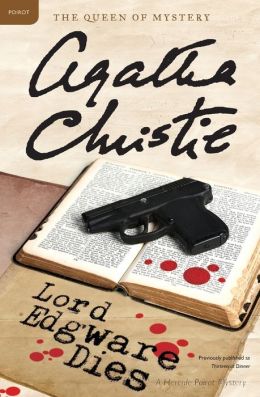

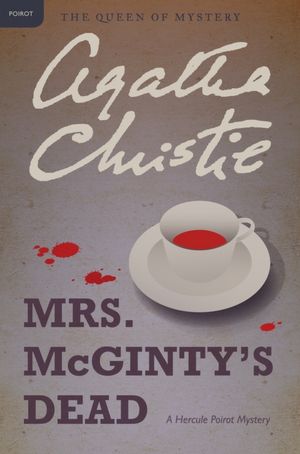


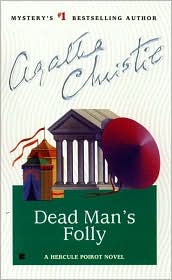
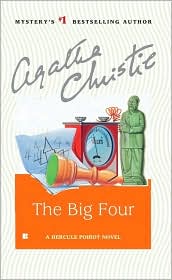
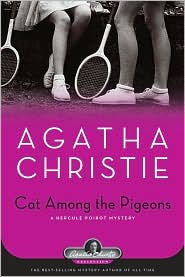
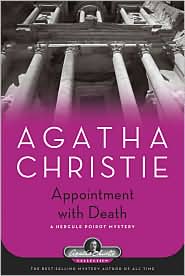
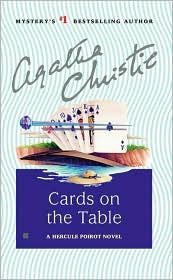


I like this one, but it's not my favorite. I'm not a huge Poirot fan, but Hastings does soften him up for me.
Thanks a lot for this review and especially for the quotes. You ve chosen exactly the ones that I liked. In fact, I ve found you by googling the quote on preconceptions about witnesses :-) I ve been listening to this story on BBC 4 extra and wanted to write down the whole citation. You may like that radio station, too. Greetings from Iva from the Czech Republic